
Introduction
Web development and programming require the right set of coding tools to enhance productivity, efficiency, and code quality. Whether you are a beginner or an experienced professional, using reliable coding tools is crucial to streamline your workflow. This blog covers 25 essential tools that web developers and programming professionals use to build, manage, and optimize websites and applications.
Table of Contents
From code editors and version control platforms to frameworks and debugging tools, these resources are designed to improve both the front-end and back-end development experience. The tools listed here cater to various needs, such as collaboration, testing, debugging, and even cloud deployment. By leveraging these coding tools, developers can create more efficient, scalable, and user-friendly applications while maintaining high coding standards. Let’s dive into the top tools that every developer should know and use to stay ahead in today’s fast-paced digital world.
1. GitHub:
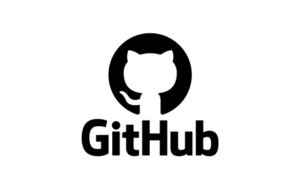
GitHub is one of the most widely used coding tools for version control and collaboration. It enables developers to manage repositories, track code changes, and collaborate seamlessly in a distributed environment. With Git integration, developers can push, pull, and merge code efficiently. GitHub also offers features like pull requests, inline comments, and GitHub Actions for continuous integration and deployment (CI/CD). These functionalities make it essential for both individual developers and large teams, fostering collaboration across various programming projects. It is invaluable for managing open-source projects and private repositories alike, ensuring effective teamwork in coding.
2. Visual Studio Code:
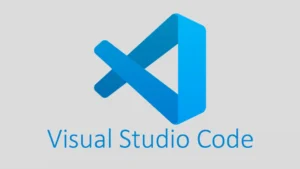
Visual Studio Code is a highly customizable, lightweight coding tool developed by Microsoft. It supports multiple programming languages, including Python, JavaScript, and C++, and offers features like IntelliSense, debugging, and built-in Git support. VS Code’s extension marketplace allows developers to enhance their coding environment with plugins that improve productivity and efficiency. With its integrated terminal and powerful refactoring capabilities, this coding tool streamlines the development process for both front-end and back-end projects. VS Code’s popularity stems from its speed, versatility, and ability to cater to both novice and experienced developers, making it a go-to editor for many.
3. Atom:

Atom is an open-source coding tool created by GitHub that offers a hackable text editor for developers. Known for its flexibility, Atom allows users to customize the editor with packages to suit their specific coding needs. It supports multiple programming languages and provides features such as real-time collaboration through Teletype, Git integration, and smart autocompletion. This coding tool also allows for the splitting of panes, enabling developers to work on multiple files simultaneously. Atom’s user-friendly interface and its active community of contributors make it an excellent choice for web developers seeking a versatile and highly customizable coding experience.
4. Bootstrap:
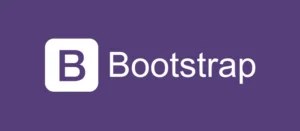
Bootstrap is one of the most popular front-end coding tools for creating responsive, mobile-first websites. It provides a collection of CSS and JavaScript components like navigation bars, buttons, forms, and grids that developers can easily integrate into their projects. Bootstrap simplifies the process of designing user-friendly websites by offering pre-built templates and a grid system that ensures consistent layout across different devices and screen sizes. This coding tool is perfect for developers looking to streamline the front-end development process while maintaining a professional and responsive design, making it essential for web development.
5. Sublime Text:
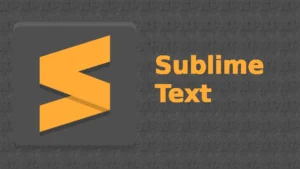
Sublime Text is a fast, efficient coding tool known for its minimalist interface and powerful features. It supports various programming languages and includes functionalities like multiple selections, a command palette, and split editing, which makes multitasking effortless. Sublime Text is highly customizable with plugins and themes, allowing developers to enhance their workflow based on personal preferences. This lightweight text editor is especially valued for its low system resource usage and speed, making it an efficient choice for writing, editing, and managing large volumes of code. Its simplicity and performance make it a favorite among developers.
6. Chrome DevTools:
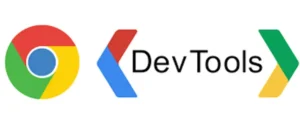
Chrome DevTools is a suite of built-in coding tools provided by the Google Chrome browser, used for web development and debugging. It allows developers to inspect elements, test responsiveness, and debug JavaScript in real-time. Chrome DevTools also provides performance monitoring, error tracking, and CSS editing, helping developers optimize their websites for speed and functionality. With features like network monitoring and auditing, this coding tool is essential for front-end developers to ensure that their websites run smoothly across different devices and browsers. Chrome DevTools is widely used for debugging and performance enhancement.
7. Postman:

Postman is a comprehensive coding tool designed for API development and testing. It offers an intuitive interface that allows developers to send HTTP requests, test APIs, and automate workflows. Postman supports real-time collaboration, enabling teams to share collections, manage environments, and track API changes. With Postman, developers can monitor responses, debug issues, and ensure API reliability, making it essential for backend development. The tool also integrates with CI/CD pipelines, providing automated testing for APIs. This coding tool is widely used in RESTful API development, offering valuable features for both solo developers and teams.
8. WebStorm:
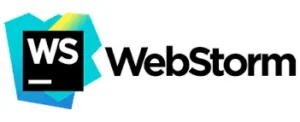
WebStorm is an advanced coding tool for JavaScript and front-end development. Developed by JetBrains, it provides intelligent code assistance for modern JavaScript, TypeScript, and frameworks like React, Angular, and Vue.js. WebStorm offers powerful features like code completion, on-the-fly error detection, and refactoring, making the development process smoother. This coding tool also integrates seamlessly with Git, testing frameworks, and deployment tools. With its debugging and profiling capabilities, WebStorm ensures that developers can write high-quality, efficient code for both client-side and server-side applications. It’s ideal for full-stack developers managing complex web projects.
9. Angular:
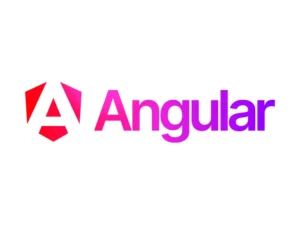
Angular is a powerful open-source coding tool used for building dynamic single-page applications (SPAs). Developed by Google, it offers a robust framework for creating complex web apps with two-way data binding, dependency injection, and a component-based architecture. Angular’s CLI (Command Line Interface) simplifies project setup, development, and testing, making it easier for developers to build scalable applications. This coding tool is widely adopted for enterprise-level applications due to its strong structure and efficient data handling. Angular’s regular updates and strong community support ensure it remains a top choice for developers building web applications.
10. Bitbucket:

Bitbucket is a Git-based coding tool for source code management and collaboration. It allows developers to host repositories, manage code, and collaborate on projects efficiently. With features like pull requests, inline comments, and branch permissions, Bitbucket facilitates team collaboration and ensures code quality. The platform integrates seamlessly with Jira for project management and supports continuous integration (CI) and continuous deployment (CD) pipelines. Bitbucket is ideal for teams looking to streamline their development and deployment workflows, making it one of the most reliable coding tools for managing and deploying software projects.
11. Notepad++:
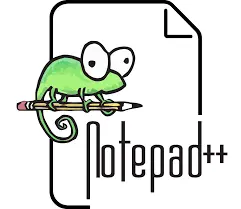
Notepad++ is a lightweight yet powerful coding tool for Windows users. It supports multiple programming languages and offers features like syntax highlighting, code folding, and multi-document editing. Notepad++ is fast, efficient, and highly customizable with plugins, making it a popular choice for quick code edits and basic development tasks. Its simplicity and performance allow developers to work on code without unnecessary distractions. While it’s less feature-rich than IDEs, Notepad++ excels in speed and accessibility, making it a preferred coding tool for developers seeking a minimalist and responsive text editor.
12. Vim:

Vim is a highly efficient text editor and coding tool favored by developers for its speed and keyboard-based navigation. Although it has a steep learning curve, once mastered, Vim becomes an incredibly powerful tool for coding. It supports multiple programming languages and can be extended with plugins to provide advanced features similar to an IDE. Vim’s lightweight nature makes it ideal for fast editing and coding in a terminal environment. Its customizable and highly efficient interface allows developers to code without leaving the keyboard, making it a favorite among experienced programmers who prioritize speed and productivity.
13. CodePen:

CodePen is an online coding tool for front-end developers to write, share, and test HTML, CSS, and JavaScript code. It allows developers to experiment with web components and see live previews of their work. CodePen is ideal for prototyping, learning, and collaborating on small front-end projects. Developers can showcase their work, get feedback from the community, and share code snippets for educational purposes. CodePen’s user-friendly interface and real-time rendering make it a popular platform for developers looking to create and test code in a collaborative, web-based environment.
14. Docker:
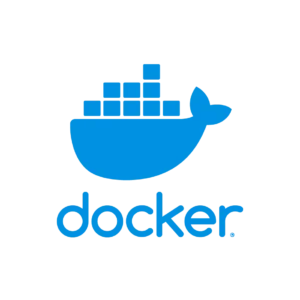
Docker is an industry-leading coding tool for containerizing applications, making it easier for developers to create, deploy, and manage applications in isolated environments. Docker containers package an application and its dependencies, ensuring consistency across different environments. This allows developers to build, test, and deploy applications more efficiently, with the added benefit of avoiding “it works on my machine” issues. Docker supports microservices architecture, making it ideal for scalable applications. Its portability, performance, and integration with CI/CD pipelines make it one of the most essential coding tools for modern software development.
15. Grunt:

Grunt is a JavaScript task runner and coding tool designed to automate repetitive tasks like minification, compilation, and unit testing. It allows developers to set up custom workflows that streamline front-end development processes. With Grunt, developers can automate CSS preprocessing, JavaScript linting, and image optimization. The tool is highly customizable through plugins, providing flexibility for different project needs. Grunt is especially popular among front-end developers who need to automate their workflows and maintain consistency across projects. Its simplicity and effectiveness make it an essential coding tool for improving productivity.
16. NetBeans:

NetBeans is a free, open-source IDE and coding tool that supports multiple programming languages like Java, PHP, and HTML5. It offers a rich set of features including code completion, debugging, and version control integration, making it a comprehensive environment for developing desktop, mobile, and web applications. NetBeans is particularly popular in the Java development community, but its versatility extends to web development as well. This coding tool is highly customizable, allowing developers to extend its functionality with plugins, making it suitable for both beginners and advanced developers looking for an all-in-one IDE.
17. React:

React is a JavaScript library and coding tool for building interactive user interfaces. It allows developers to create reusable UI components, streamlining the process of building dynamic and responsive web applications. React’s virtual DOM enhances performance by updating only the parts of the page that need changes. With a focus on component-based architecture, React simplifies the development of scalable applications. It’s particularly popular for building single-page applications (SPAs) and integrates well with other frameworks and libraries, making it a widely used tool in modern web development.
18. Ruby on Rails:

Ruby on Rails, or Rails, is a powerful coding tool and web application framework written in Ruby. It emphasizes convention over configuration, making it easy for developers to build web applications with minimal code. Rails follows the MVC (Model-View-Controller) architecture, which helps developers organize code effectively. It also includes tools for database management, routing, and testing, enabling quick development of robust web applications. With its large community and extensive library of gems, Ruby on Rails is a preferred choice for startups and developers looking for rapid application development.
19. Sass:

Sass (Syntactically Awesome Stylesheets) is a CSS preprocessor and coding tool that extends the capabilities of standard CSS. It allows developers to use variables, nested rules, and functions, making CSS more efficient and easier to manage in large projects. Sass compiles into regular CSS, ensuring compatibility across all browsers. This coding tool is especially useful for developers working on large-scale projects, as it helps maintain clean, modular, and reusable stylesheets. Its integration with popular front-end frameworks like Bootstrap further enhances its utility in modern web development.
20. Zend Studio:

Zend Studio is a specialized coding tool and IDE designed for PHP development. It offers features like code completion, debugging, and smooth integration with the Zend Framework. This tool is built for professional developers who require efficient workflows for PHP coding and cloud-based applications. With strong support for Git and GitHub, it enables seamless collaboration. Additionally, Zend Studio provides a powerful debugger and profile for testing and optimizing code. It’s particularly popular among enterprise-level developers working with complex PHP applications.
21. Cloud9 IDE:

Cloud9 IDE is a cloud-based coding tool that provides a fully integrated environment for writing, debugging, and running code. It supports multiple programming languages, including Python, PHP, and JavaScript. Cloud9 is highly collaborative, allowing developers to code together in real time, and its cloud-based nature enables access from any location. It integrates with AWS for easy cloud deployment, making it an essential tool for modern development teams working on scalable projects. Cloud9 offers all the benefits of a traditional IDE with the flexibility of cloud-based collaboration.
22. Microsoft Azure:
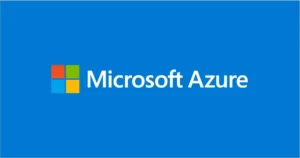
Microsoft Azure is a cloud computing platform that serves as a comprehensive coding tool for developers building, deploying, and managing applications. It offers services such as virtual machines, databases, and serverless computing. Azure supports a wide range of programming languages, providing developers with the tools to build scalable applications in a secure environment. Azure integrates well with Visual Studio Code, enabling seamless cloud deployment. Its flexibility and extensive suite of services make it a powerful solution for enterprise-level applications and cloud-based development.
23. Brackets:

Brackets is an open-source text editor and coding tool developed by Adobe, tailored specifically for web development. It supports HTML, CSS, and JavaScript, offering a live preview feature that allows developers to see changes in real time. Brackets also includes inline editing, preprocessor support, and extensions for enhanced functionality. This lightweight coding tool is particularly popular among front-end developers who need a responsive and easy-to-use text editor. Its live preview capabilities make it ideal for designing and developing interactive websites with immediate feedback.
24. Codelobster:

Codelobster is a free PHP IDE and coding tool that simplifies web development. It supports multiple programming languages, including PHP, HTML, CSS, and JavaScript, making it a versatile choice for full-stack development. Codelobster offers features like auto-completion, a PHP debugger, and support for popular frameworks such as Laravel and Symfony. This tool is also compatible with content management systems (CMS) like WordPress and Joomla, making it a practical solution for web developers working on a variety of projects. Codelobster’s user-friendly interface and powerful features make it a valuable addition to any developer’s toolkit.
25. Node.js

Node js is an open-source, cross-platform coding tool designed for building scalable server-side applications using JavaScript. It’s built on Google Chrome’s V8 JavaScript engine, enabling developers to run JavaScript code outside a browser environment. Node.js excels in handling asynchronous I/O operations, making it ideal for real-time applications like chat servers, data-intensive APIs, and streaming services. With an extensive package manager (npm), developers can easily install libraries and tools, boosting productivity. This tool is widely used for backend development, allowing developers to build fast, scalable network applications with ease.
Conclusion:
In today’s fast-paced development environment, having the right coding tools can make a significant difference in productivity, code quality, and project management. The 25 tools mentioned in this blog cover a wide range of functionalities—from version control and task automation to collaborative coding and cloud deployment. Whether you’re working on front-end design or back-end development, these coding tools help streamline workflows and simplify complex tasks.
By integrating the right tools into your workflow, you not only increase efficiency but also reduce errors and improve collaboration. These tools ensure that you stay ahead in the rapidly evolving tech landscape, allowing you to deliver high-quality, scalable applications with ease. Embrace these coding tools to enhance your development process and create better, faster, and more reliable software solutions.
